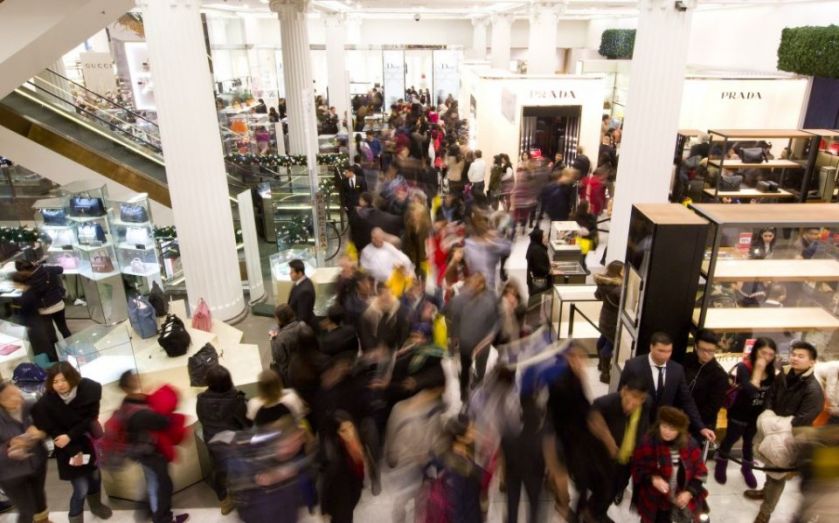When you’re hungry you end up spending more money, and not just on food

Most of us are well acquainted with hunger-driven over-spending. The purchasing of a family meal for one after a long day at work, or the ordering of twice as much food as you could possibly eat at a restaurant.
Hunger can distort our perception of what we require to make us feel satisfied again, and it turns out the effect extends way beyond our bellies.
Alison Jing Xu, a researcher of decision-making at the University of Minnesota in the US, wanted to find out whether shopping on an empty stomach led people to buy more of everything, from clothes to kitchen utensils. By carrying out a series of experiments, she found that hunger-shopping may indeed be dangerous for our wallets.
"We'd like to make consumers aware of the possibility that if they go shopping on an empty stomach, they might spend more money that they intend to – so better feed themselves before they go out," she told the New Scientist.
Jing Xu and her team asked a series of shoppers to rate how hungry they were and how much they liked various items, ranging from food to non-food. She also asked them to rate how much they would like to own the items.
In terms of simply liking something, it was only the food items that went up in the volunteers' estimations when they were hungry, but the results showed a different trend when it came to desire for possession – there was a positive impact all round, with volunteers showing a greater greediness for everything when hungry.
The team then took the investigation into the heart of shopping territory – a busy department store. Standing outside, they stopped shoppers and asked to see their receipts, while also asking them to rate their hunger level.
Once external factors such as mood and time spent shopping were accounted for, customers who were hungry were found to spend 64 per cent more money than the full shoppers. The study has been published in the journal PNAS.
Blame the hormones
If you are a big offender of hunger-shopping, at least you can blame it on your hormones – the study suggests that gherlin, also known as the “hunger hormone”, could be responsible.
When the stomach is empty, ghrelin is secreted into the bloodstream, but when food enters and the stomach is stretched, secretion stops. It plays an important part on regulating reward perception, acting on an area of the brain known as the ventromedial prefrontal cortex.
When we are hungry, the hormone drives us to seek a reward so that we consume calories, but a possible side effect of this is a desire to reward ourselves with other things, such as expensive suits or handbags.
In fact, the effect might not even stop at shopping, which is what the researchers will now look into: “We're now going to look at how hunger might influence other behaviours, like how people communicate with others,” Xing Ju explained.